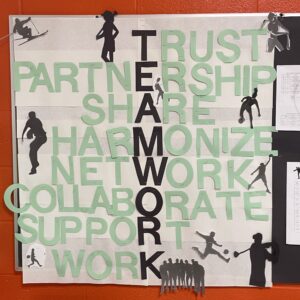Latest Case Study from Roxbury Central School Now Available from NYKids
This summer, the NYKids team continues to release case studies from our 20th anniversary study. This year, we’ve returned to schools from our previous study which have continued to demonstrate positive outlier status (what we call “persistent positive outliers”) as well as those that were previously identified as typically-performing, yet have shown improved student outcomes over time (what we call “emergent positive outliers”).
We are excited to announce the case study of Roxbury Central School, the second emergent positive outlier in our study. In what follows, we review some of the major themes we found at Roxbury and highlight some promising practices, but you can read the entire case study here!
Roxbury Central School Background
 Situated in the northern Catskill Mountains, Roxbury Central School serves just over 200 students. Though it is approximately 90 minutes from several cities in New York (Albany, Poughkeepsie, Binghamton), Roxbury is described by educators as a distinctively rural location with much to offer in the way of natural beauty and outdoor recreation. While the community has remained stable in some ways, educators explained that there has been a recent influx of families settling in the area and buying second houses.
Situated in the northern Catskill Mountains, Roxbury Central School serves just over 200 students. Though it is approximately 90 minutes from several cities in New York (Albany, Poughkeepsie, Binghamton), Roxbury is described by educators as a distinctively rural location with much to offer in the way of natural beauty and outdoor recreation. While the community has remained stable in some ways, educators explained that there has been a recent influx of families settling in the area and buying second houses.
In this close-knit, rural context, several educators described the feeling of Roxbury Central School as a “family” in which colleagues looked after each other and their students. An emphasis on building relationships with students throughout their time in the K-12 building – whether through classes, sports, music, art, or other extracurricular activities – was seen as a paramount goal for staff members. While educators prioritize readiness for college for all students, they also emphasized developing “soft skills” in students such as communication, citizenship, self-advocacy and empathy.
Key Findings and Promising Practices
Building Relationships with Students
I think the biggest and the most important thing, in my opinion, is the relationship with the family, and the relationship with the student. If you don’t have a positive relationship or a trusting relationship with the student or the parent, you’re not going to be able to move forward. – support staff
A clear priority shared by Roxbury educators was the need to build relationships with students and their families. Although educators explained how the close-knit nature of rural Roxbury had provided them with opportunities to build deep ties between the school and community members, many also noted that the recent budgetary concerns and tensions brought on by the COVID-19 pandemic strained these relationships. Under new leadership and with renewed hope for the future of Roxbury, educators described how they have redoubled efforts to build caring relationships with students and their families.
Promising practice #1: Regularly share positive news and updates about students with family members to cultivate trusting relationships.
Going the Extra Mile to Support Students
You have to be a team player. You have to be flexible. And you have to be here for the kids. You have to be here for the right reason. – teacher
Like educators in many rural communities, Roxbury staff described the ways in which they often had to stretch the resources at their disposal to meet students’ needs. For example, educators explained how they were always willing to go the extra mile to support students’ academics and their social-emotional wellbeing by offering students additional tutoring opportunities and checking in on them regularly. Educators also wore “many hats” – as one teacher put it – often taking on additional roles in the school aside from their primary duties.
Promising practice #2: Provide additional time outside of class to assist struggling students and reteach content in varied ways to engage those with different learning styles.
Providing Choice after Graduation and Emphasizing “Soft Skills”
Because we’re such a family, I would consider it a whole community, that you have everybody who wants what’s best for kids going forward so that when they graduate, they can do what, they can go into the military, they can go into college, they can go ahead and get a job. – principal
Educators at Roxbury endeavored to provide students with a range of choices during both their time as students as well as after graduation. For instance, students interested in career training were encouraged to take a range of classes through the local BOCES to prepare them for the workforce. In addition, educators at Roxbury viewed success as preparing their students to become active members of society, rather than measuring only their performance in classes or on standardized exams. With this in mind, educators sought to cultivate “soft skills” in their classes, such as critical thinking, civic engagement, and communication.
Promising practice #3: Add courses which prepare students with career and technical training, and base these offerings on students’ interests.
Stay Tuned!
Read the entire Roxbury Case Study on our website and keep an eye out for more case studies of emergent and persistent positive outlier schools this summer!
As always, we thank you for your interest in NYKids! Please reach out to us at nykids@albany.edu or follow us on X, Instagram, Facebook, and LinkedIn! We also encourage you to contact us if you are interested in NYKids direct school improvement support this summer.
Tag:case study, positive outlier, report, research
